After many clips and images surfaced on social media over the past few months, the new Anne Boleyn series is finally here. It is a fresh take on the story we have read and seen so many times, focussing on the final five months of the queen’s life.
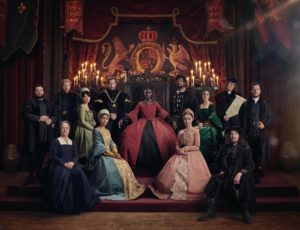
Cast of Anne Boleyn with Anne Boleyn in the middle played by Jodie Turner-Smith. © Channel 5, Parisa Taghizadeh
Behind the scenes, many people have been working hard on bringing this story to the screen. The Tudor Society has had the honour of speaking with director Lynsey Miller and writer Eve Hedderwick Turner about what the show means to them and why telling Anne’s story in a different way is important.
First of all, what drew you to this project?
Eve: So I have been admitting to people how geeky my sort of interest with the Tudors has always been. I really loved reading books about the period when I was a teenager, the drama and the intrigue, like Philippa Gregory’s novels. When Fable spoke to me about the fact that they were potentially developing a show about Anne Boleyn, I immediately was like “yes please”, because if anything it was a chance to tell her story fresh. It was a possibility to do it in a subjective psychological way and really get under her skin and see how events unfolded from her point of view. So that was kind of my immediate instinct with it and luckily it sort of aligned with what they wanted to do.
Lynsey: I was a little different, because I think there have been so many different adaptations, so many pieces of literature. I couldn’t really see the point initially, so I think it was really enjoyable and interesting but it had been done before. However, when I read the script, she had come out of it in a really different way and I felt like it was telling me something that I hadn’t seen before. I think it was that subjective viewpoint that really drew me to it.
The show is a psychological thriller, why is that?
Eve: Quite early on I was trying to decide how to frame the story and which parts of her life to look at. There were lots of fascinating parts of her life, but I decided that I wanted to focus on the final 5 months, because it would really struck me that that was such a short period of time to go from being one of the most powerful women in the country to being murdered by your husband. So once I realised that that was the framework which we were gonna go with, it felt like it lent itself quite easily to a thriller type format. It’s obviously incredibly frightening what happened to her and it has this kind of ticking clock element to it that I think really hightens that sort of genre element in some ways.
What has it been like working on the series? What was the most exciting?
Eve: Well, for me it’s all been very exciting, because this is the first project where I’ve worked on where I’ve actually gone into production with one of my scripts. I used to be an actor and that’s how I came to write. So I absolutely love this part of the process where it starts to come to life with Lynsey coming on board and telling me all of her ideas of how the scenes are going to come off the page. Then the cast starts to become attached and they bring their own personalities and spirits through all these characters I’ve spent ages getting to know. It was so brilliant to see it become 3D in that way, so that was probably my most exciting bit of it.
Lynsey: I think for me it was the casting of this show, because we decided to go down the road of casting people who we felt could capture the spirit and essence of the characters. When we started to do auditions and meet the people who would then become our cast, we really crystalised the characters and for me it felt like that was really exciting. It helped in being able to stay really true to the period. It also has this really modern feel and I think for me one of the most interesting things was looking at the idea of celebrity and public perception now and putting it onto that period. Like the execution, we really need to look at the humanity behind that. You have got this scared young woman, terrified for the future that’s going to await her and her daughter. It just made me think of the way that celebrities live now and how we project our own wants, cares, prejudices and desires onto them. So I think that was the most interesting for me, how relevant the story still is. In terms of the best day, I think for me it was the two days of the trial. That was really, really exciting to be involved in, like, Eve’s script is let off the page and the actors were just on fire and all of our departments just outdid themselves, it was really exceptional and very exciting.
How are you feeling about the show airing soon?
Eve: It’s very exciting and obviously also quite nerve wrecking, because you go through this immersive creative experience and it’s quite a long one as well. It’s been brilliantly collaborative and it becomes this fantastic thing that you all have formed together. Then you suddenly realise you’ve got to show it to the world and other people might not like it as much as you do. It’s scary, but I guess most good things are quite scary.
Lynsey: I feel like this may be one of the first times that I just feel really proud of it. I know that everyone has done good work, so I am happy to show it to the world.
What is the thing you hope people will take away from the show or maybe learn by watching it?
Eve: I think hopefully what we have got is a story that will appeal to people on quite a few different levels. I hope everyone sitting on the sofa will take away something different. I do think that we have hopefully done quite a good job in showing Anne as a human being and all of her complex motivations and ambitions in a way that feels a little bit fuller than maybe some other stories that are being told. I think really exploring her maternal instincts, her ambitions for her daughter and how involved in the political landscape of the court she was. She was much more than someone who just wanted power for power sake. She really had her own interest in shaping the country and had political ideas that she wanted to be taken seriously for.
I think there are lots of themes that unfortunately still feel quite relevant today, like the various pressures that we put on women to perform on all different levels. These things sadly still feel vital today and it just reminds you that all these issues that Anne was struggling with in the 1500s, women are still struggling with today. The problems have just taken a different form, but they are very much still there.
Lynsey: When I read Eve’s script initially, what kind of struck me was the idea of there being masculine action in the feminine part. So traits that were normally given to male characters, were given to a female character, which is very exciting, because that is reality. We always get really hung up for some reason of having likable women on screen, which isn’t true really. I think the thing with Anne is that she challenged the status quo and you still see that now. As soon as anyone, especially ambitious women, challenges the status quo they have to be put back into their box, because so many people’s possessions are dependent on maintaining it. Now we see history evolving and changing, because history is written by the victor, so for so long she had been branded a witch or a traitor or an enigma. I think seeing the humanity behind that is really interesting.
Eve: Yes and Lynsey has done a fantastic job of making it a sort of intimate portrayal. Between Lynsey and Jodie it feels so human and soft, but also strong. Also, what is really great, is that you do have this incredible journey going on from a woman who is proud, a bit obnoxious and at times not very likable. When she is going through these transitions in the series and goes to her lowest moment, she draws on such dignity to get her through those final weeks. It is a really fantastic journey to go on with her.
What was it like to maintain a balance between fact and fiction?
Eve: We were really lucky to have one of our executive producers, Dan Jones, who is a really incredible historian and our consultant on the show. So as I was doing my research, he really helped me to find the books that were going to be the most useful along that journey. As I was delving deeper into my reading, I realised that history was made up of patch works of different accounts, sometimes those accounts were conflicting and sometimes they agreed with each other. They were often quite subjective and had their own angle depending on someone's political motivation. So there was a lot of malleable space in between historical records for a filmmaker to take liberties or different journeys through the facts. It was great to have Dan who we could always call on to ask “is this too much if I were to say that this person was doing this”. And he would say “no I think that is fair enough” or “no you absolutely can’t do that” and so some really interesting storylines emerged from those grey areas, such as dynamics between characters in the show that were definitely not there in the research. However, there was enough space between the facts for them to breathe and come alive and I think that is definitely part of the fun as storytellers when you approach a historical story.
Anne Boleyn will air tonight at 9pm on Channel 5 in the UK.

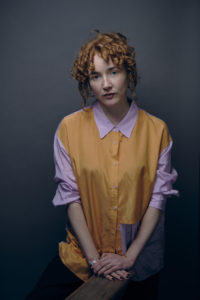
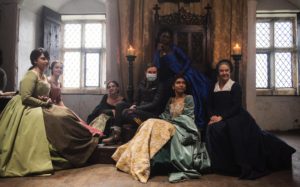
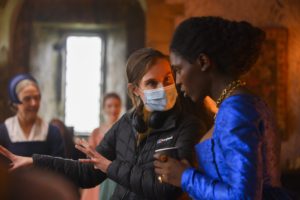
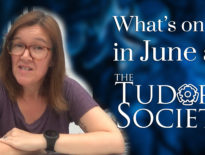
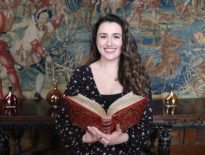
Yes, but there’s no evidence that Anne Boleyn kissed Jane Seymour or made stroked her neck as she read from the Bible.
What’s that about?
In these scenes, Anne is using her body and sexuality as a way to assert her power. It is a way for her to control Jane. The fact that Jane doesn’t protest the kiss shows that to her, sexuality is also a mean to an end. She doesn’t care too much one way or the other, as she explains. She doesn’t car about love, she cares about safety and honor.
I found this drama powerful and dark and difficult all at the same time, with Anne being played powerful and dramatic and commanding by Jodie Turner Smith. However, there are some problems which distracted from the otherwise excellent and original way Anne was portrayed. As I said, it wasn’t necessary to have Anne sexualized in her interaction with Jane Seymour or a scene in which the two women kissed. That just wasn’t needed.
Having said that, the inner psychological struggle that Anne went through in those months came through in a variety of emotions. She was triumphant and happy and then her world slowly slips into turmoil as it becomes clear that Henry isn’t her most devoted servant. We see Anne’s problems go from bad to worse during the vehicle of both traumatised events and emotional challenges and the conflicts of rivals. Some things in this drama are hard to watch. Then we finally feel Anne’s catastrophic loss, the physical loss of her baby, the total collapse of her world and the mental loss of her political power. The fear is palpable.
There are some odd ways in which Henry’s point is made as well, the peac*cks are almost as symbolic as the swans in the Tudors, he won’t be dictated to by his wife. The horse is almost symbolic of Anne’s ultimate fate. Of course Henry didn’t order his horse to be killed, but it was there as if to hold foreboding for those who disobey the King.
The whole “innocent animal killed at the win of the king” they were going for with the horse that threw the king really lost its poignancy when Anne herself is ordering peac*cks shot in the same episode for a much less serious reason.
Anne historically did complain about peac*cks which were keeping her awake during her final pregnancy. Henry moved them. I can well imagine she did threaten to shoot them and peac*cks are very noisy. It was believed that loud noises, sudden shocks and certain sightings could alarm pregnant women and cause a miscarriage. I am sure Anne was just being annoyed because of her hormones. Anyway, in reality the birds were actually moved, not shot.
The poor horse, really unnecessary, but everything is symbolic in drama.
Why is Anne shown as a black woman?
That was the choice of the makers of the drama, its called colour blind casting. She isn’t the first none white woman to play Anne. I wasn’t too much in favour at first but Jodie is great as Anne, probably one of the best things about the drama. Her stage presence is excellent. Its a pity Henry wasn’t done better but you did get the sense of loss and mixed feelings Anne suffered with her traumatic miscarriage. It was heartbreaking. Some of the modern dialogue could have been missed out, but for the most I actually thought it worked.
I watched the episode where Henry has injured himself and I was appalled to discover there was a scene where they brutally kill the horse and it was very realistic- I had to stop watching this episode altogether- the pain in the voice of this horse was horrendous and it was disturbing.
I am unable to continue watching this series as a result of this cruel act.
Very Disappointing.